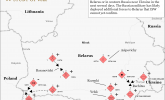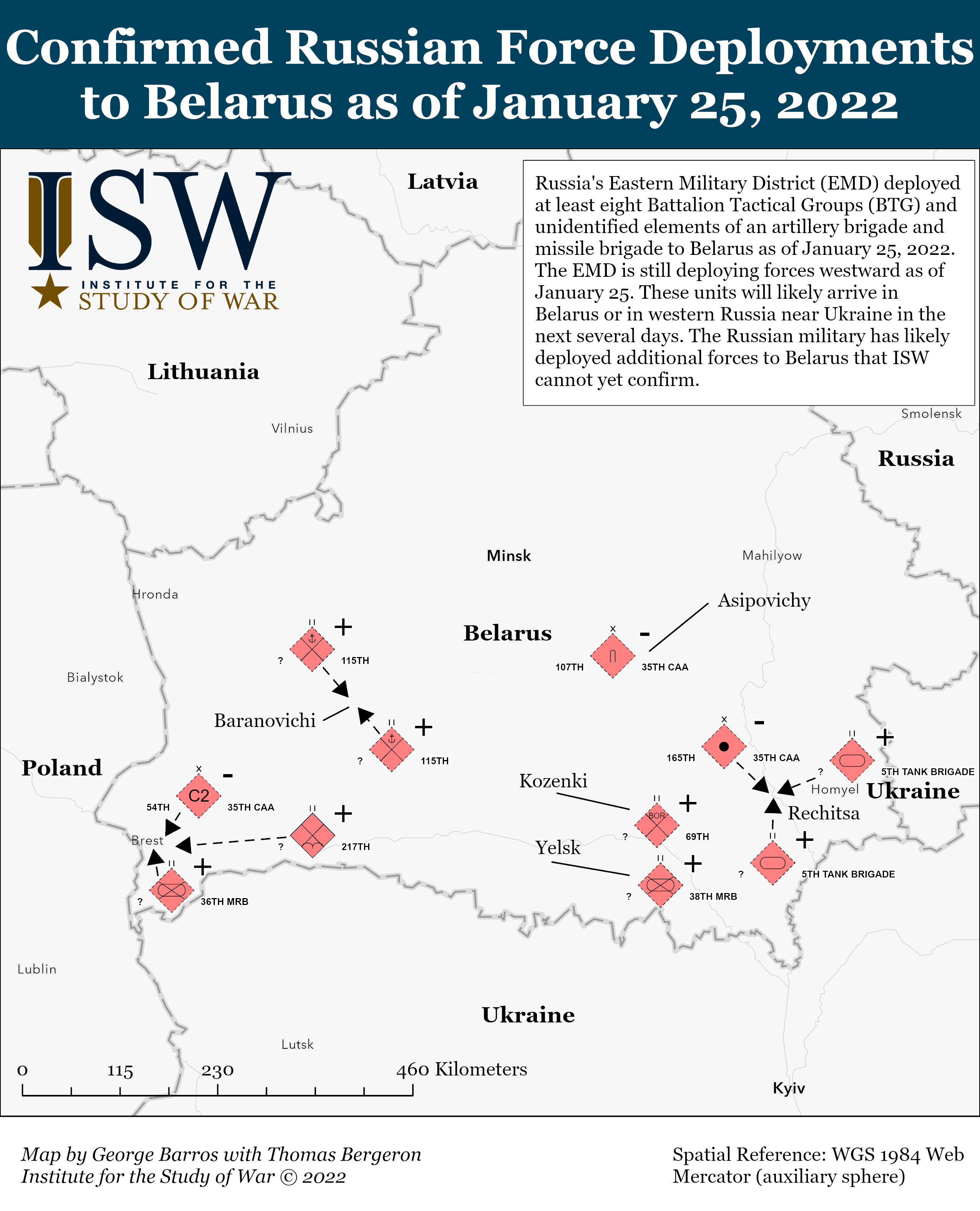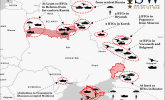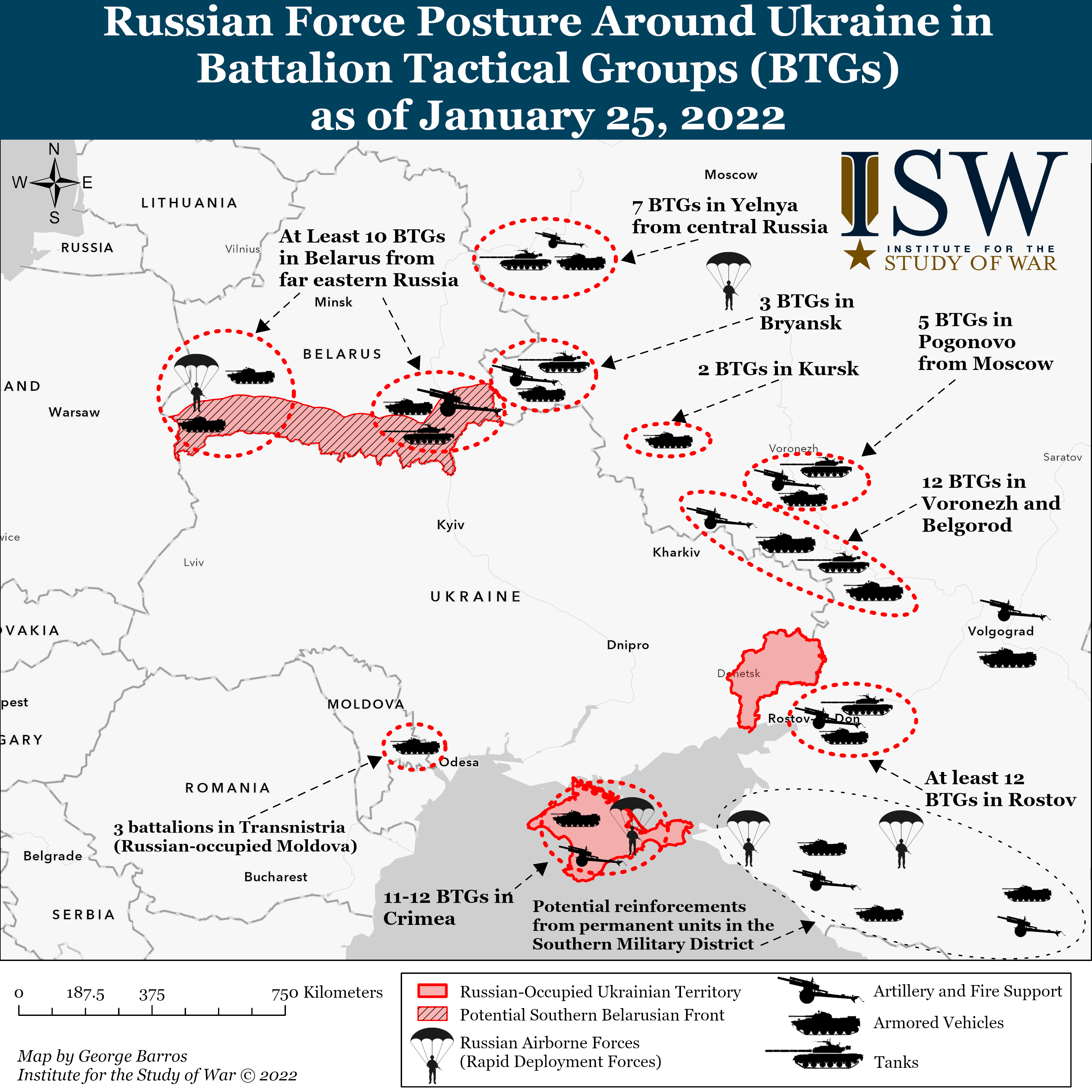 |
 |
Publications
Turkey in Review: December 28, 2021 – January 18, 2022
January 21, 2022 - ISW Press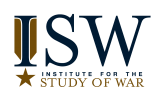
Kazakhstan Crisis Exposes Limits of Turkey’s Reach in Central Asia: Rapid developments in Kazakhstan in January 2022 outpaced the Turkey-led Organization of Turkic States’ ability to respond with more than offers of support to the Kazakh government. Ankara’s initial response to the Kazakh crisis was limited to calling for stability and peace. Turkey accelerated its outreach to Kazakhstan, however, after the Russian-led Collective Security Treaty Organization (CSTO) agreed to deploy troops into the Central Asian country. The CSTO deployment, the first time the organization invoked its collective security provision, likely motivated Ankara to take more vigorous steps to ensure Turkey retains a role in Kazakhstan. Kazakhstan remains under a state of emergency imposed in response to widespread unrest that began with localized fuel protests.
Russia in Review: December 1, 2021 – January 11, 2022
January 14, 2022 - ISW PressISW’s Russia team is closely monitoring the ongoing situation around Ukraine, including Russian force deployments, rhetorical changes, and Western responses. This issue includes coverage of Russian activity in Vietnam, Egypt, Belarus, the Balkans, India, Tajikistan, and Germany.
Turkey in Review: December 7 – December 27
December 30, 2021 - ISW PressTurkey’s volatile currency has worsened the humanitarian crisis in northern Syria and raised the cost of Ankara’s governance responsibilities there. The Turkish lira’s recent volatility and Turkey’s high inflation rates pose significant problems for not only those living in Turkey but also in Turkish-controlled northern Syria, where Turkey has built extensive financial networks and introduced the use of its currency. The Turkish lira lost up to 40 percent of its value over 2021 as a result of President Recep Tayyip Erdogan’s unconventional monetary policies. The lira’s value has improved slightly and stabilized since December 20, but price hikes on basic goods will likely remain, disrupting the purchasing power of Turks and Syrians alike.
Afghanistan In Review November 20-December 8, 2021
December 13, 2021 - ISW Press
The Taliban central leadership continues to consolidate its power within Afghanistan by asserting control over the judicial system, replacing civil servants with Taliban loyalists, expelling some Taliban fighters, and meeting with Shi’a community leaders. The Taliban leadership will continue to appoint Taliban members throughout the Afghan bureaucracy in order to exert control over the state and reward its fighters and commanders. The Taliban’s work with Shi’a communities may run into conflict in the future, however, as the Taliban has historically persecuted Shi’a communities in Afghanistan and some hardline elements of the Taliban may not support this change in policy.
